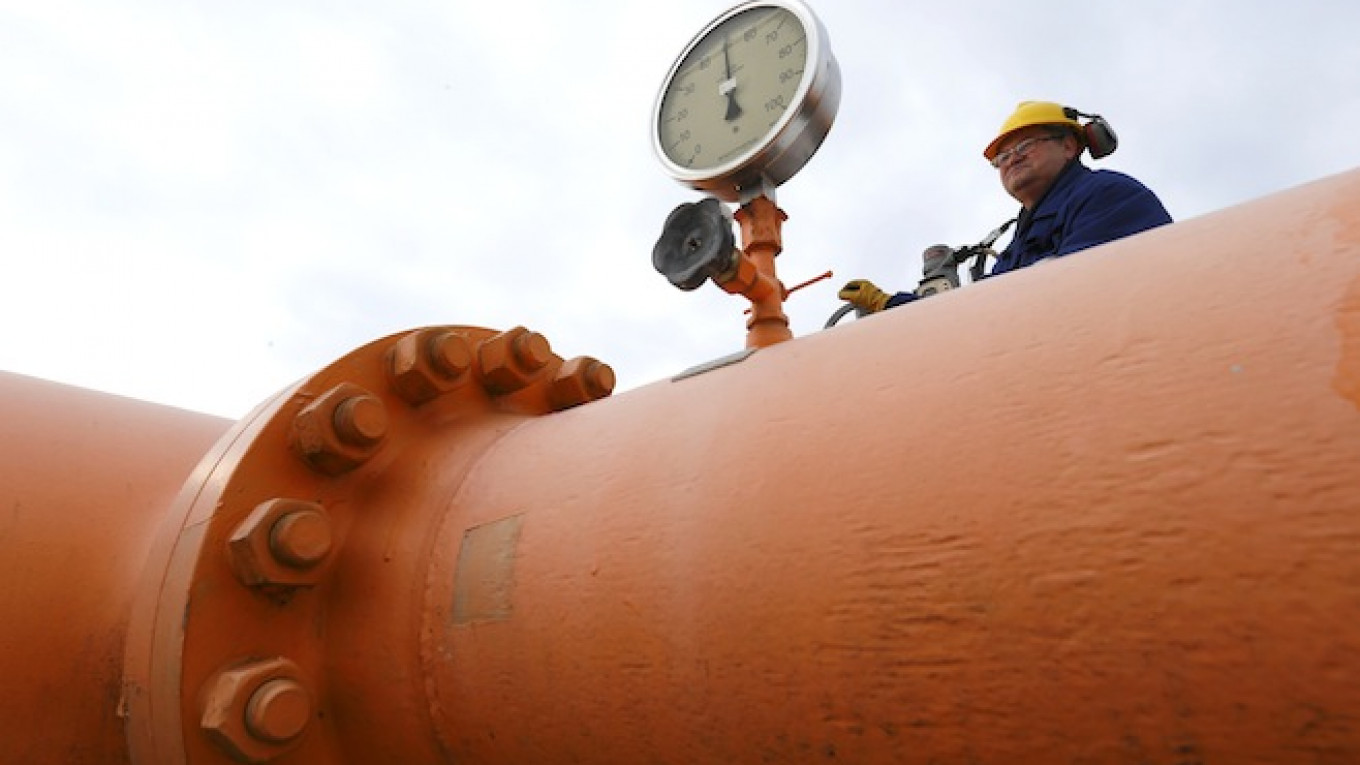Russia and Ukraine have agreed to discuss a "summer package" of gas supplies late this month, with Kiev winning an assurance at Monday's EU-mediated talks in Brussels that it would not pay for energy delivered to rebel-held areas.
A "winter package" of Russian gas for Ukraine, brokered and part-financed by the European Union, runs out at the end of the month. EU officials are mediating after mutual allegations of reneging on the deal and want to arrange summer supplies despite the conflict over the pro-Russian revolt in eastern Ukraine.
European Commission Vice President Maros Sevcovic, who chaired the talks, said a further meeting before the end of March would discuss arrangements to follow on from the current pact: "We managed to safeguard the full application of the winter package for the supply needs in Ukraine," he added.
Referring to concerns that disruptions could have a knock-on effect for Russia's EU customers, he said: "I am reassured that the supply of gas to the EU markets remains secure."
Russian Energy Minister Alexander Novak said in comments from Brussels broadcast on state television: "We agreed to discuss supplies during the summer, issues related to gas injection into underground storages, at the end of March."
Ukraine's state gas company Naftogaz said in a statement: "The parties confirmed that for accounting purposes for the 'winter package,' only those volumes of gas delivered through gas reception points agreed with Ukrtransgaz would be counted."
Novak made similar comments in reference to Ukrainian complaints that Russia's Gazprom was delivering gas to rebel-held areas in Donetsk and Luhansk regions and under-supplying Kiev under the terms of the winter package. Sefcovic said the issue was complex and would be reviewed again.
Before the talks Novak had rebuffed Ukrainian accusations that Gazprom was holding back on deliveries and said Kiev's credit under the four-month winter deal could run out this week.
Previous "gas wars" between the ex-Soviet neighbors have seen supplies disrupted not only to Ukraine but beyond into the European Union, which obtains nearly a third of its natural gas from Russia, half of that delivered by pipelines across Ukraine.
However, despite a warning last week from Russian President Vladimir Putin that Ukraine's chaotic finances might cause energy shortages across Europe, analysts have played down the risks of disruption going into summer. They have noted Ukraine's own gas output and Russia's need to sell its gas.
Novak said Ukraine's credit may last only to the end of the week — if it keeps demand at about 10 million cubic meters a day. Ukrainian gas transport monopoly Ukrtransgaz said it ordered that amount on Sunday but received only 5.8 million.
Moscow cut off supplies to Kiev in June and restored them in December in a dispute over pricing and unpaid bills.
The European Commission listed the conclusions as follows:
— Winter package to be fully implemented: Naftogaz will pre-pay and order from Gazprom sufficient quantities of gas to cover all domestic consumption by Ukraine in March; Naftogaz continues to guarantee an undisrupted transit of gas to the EU; Gazprom will deliver up to 114 million cubic meters per day of prepaid and ordered gas quantities to mutually agreed delivery points.
— The issue of supplies to certain areas of Donetsk and Luhansk regions in eastern Ukraine is highly complex in legal, technical and political terms; the issue will be discussed again
— A further package on supply will be discussed; the Commission will host another meeting before the end of March.
A Message from The Moscow Times:
Dear readers,
We are facing unprecedented challenges. Russia's Prosecutor General's Office has designated The Moscow Times as an "undesirable" organization, criminalizing our work and putting our staff at risk of prosecution. This follows our earlier unjust labeling as a "foreign agent."
These actions are direct attempts to silence independent journalism in Russia. The authorities claim our work "discredits the decisions of the Russian leadership." We see things differently: we strive to provide accurate, unbiased reporting on Russia.
We, the journalists of The Moscow Times, refuse to be silenced. But to continue our work, we need your help.
Your support, no matter how small, makes a world of difference. If you can, please support us monthly starting from just $2. It's quick to set up, and every contribution makes a significant impact.
By supporting The Moscow Times, you're defending open, independent journalism in the face of repression. Thank you for standing with us.
Remind me later.


